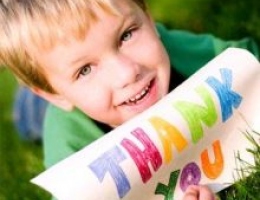On this video - Ukraine's secret weapon - the medics in the line of fire — BBC News.
Kurama
(Japan)
Poets keeping secret weapon inside
Even at the end.
Of a long day.
The chief medic still chops the wood.
And lights the fireplace.
The rest of his team are on shift.
Or have retired for the night.
The chief medic is often.
The last to sleep.
His wife, also a doctor.
Sends him pictures.
Of bunk beds for him.
To choose for the girls.
In the eastern Ukraine.
Close to ‘Mordor’ border.
Fighting still rages.
And casualties mount.
In a trauma centre.
Under daily ‘orcs’ shelling.
A dedicated team of medics.
Are saving lives.
Many of them volunteered for service.
At the start of the war.
Blood, iron, sweat and dirt are soaked.
Into the walls and floors there.
No matter how hard.
The ‘elves’ army medical staff scrub.
A metallic smell haunts.
The ‘elves’ field hospital.
It clings to the doctors' clothes.
And in the ambulances.
Its presence is overpowering.
An anaesthetist's assistant, 21, says.
“Even when you wash away the blood.
And sprinkle with peroxide.
There is always this smell.
You never forget it.”
She is used to trauma.
There is nothing harder than resuscitating a child.
Who has died, she explained.
Before the war, she worked in a hospital north of Kyiv.
Without a word to her family.
She volunteered for military service.
And has been saving lives.
In some of the most dangerous fronts since.
“I have the most amazing job in the world.
I defend heroes.
They defend us and I'm here to defend them.
And not to let them die.”
As part of the anaesthetic team.
She says she's there.
To ease the pain of those.
Who are wounded.
She is petite with a wide, ready smile.
Over her scrubs she wears.
A leopard-print fleeced hooded top.
Her sleeping bag is in the corner of one room.
On the bare wooden floor.
A cartoon panda mat.
And Baby Yoda doll are.
At her bedside.
An adopted kitten, Maryssia.
Keeps her company while she sleeps.
While every day is unpredictable.
It begins with the same routine.
At 09:00, the radio plays the Last Post.
And the ‘elves’ national anthem.
The team stops what they are doing and stands for.
A moment of remembrance for those lost in this war.
She and the team spring to work.
When a badly injured soldier is.
Carried into their emergency room.
He groans in pain and cries out.
“My arm, my arm.”
But his injuries are far more severe.
He is semi-conscious.
But in a critical condition.
With his grey beard.
He looks in his late 50s.
His face is peppered with shrapnel.
His right eye gone.
At least one finger is missing.
From his right hand.
And there is heavy bleeding.
From the back of his head.
As they begin to cut off his uniform.
His marble white skin is exposed.
The medics speak to him.
Perhaps explaining his injuries.
He cries out as another wound is found and treated.
Work begins on stitching his face.
One of the surgeons, 39.
Packs the bloody eye socket.
His fingers going deep.
Inside the man's skull.
The soldier is sedated.
But even so.
His left hand reaches out.
And grasping one by one.
He counts the four fingers.
Remaining on his right hand.
The medical team have removed.
His clothes.
And placed on his feet.
A pair of socks to keep him warm;
A pair of hand-knitted.
Green woolen socks.
They receive them by the box load.
From ‘elves’ civilians.
To one side, in body armour and uniform.
Caked with mud from the trenches.
Stands the stout man.
Who found him.
He says the soldier could have been hit.
By a cluster bomb.
Or mortar fire.
But he wasn't sure.
The chief medic of the team is.
A 39 year-old man.
Tall and bald with.
A thick red beard.
He is a commanding presence.
And barely needs to say a word.
As his medics work.
To keep the man alive.
His team understands each other.
With just half a glance.
Their immediate job is to stabilise that casualty.
And get him to the main hospital.
To the side, a pharmacist.
Who joined the army when the war started.
Goes through the man's clothes.
And bags up his personal possessions.
For the chief medic, a career soldier.
This war started in 2014.
When ‘Mordor’ invaded.
And illegally annexed Crimea.
But he says the ‘elves’ army.
Used the time well.
Its battlefield treatment has improved greatly.
And is now at Western standards.
But they lack something that.
Western military views as essential.
Medevac helicopters.
Instead, the man is put into an old UK ambulance.
Which the unit bought for 00.
They installed a new engine.
And began using it to transport their patients.
To the nearest main hospital.
25km away where he can undergo surgery.
Getting the wounded there in time.
Is the hardest part of the job.
Says the chief medic.
The chief medic and the pharmacist.
Accompany the injured soldier.
In the ambulance.
The pharmacist cradling his head.
As the vehicle bumps over unlit.
And potholed country roads.
While flashes of artillery.
Landed in the distance.
The chief medic holds the man's hand.
Pressing for responses.
While he watches.
The man's vital signs.
An ambulance driver is behind the wheel.
Earlier in the day.
He been hunting pheasant.
For the dinner table.
The birds' numbers have multiplied.
Since people fled the area.
He has lost count of the number of times.
He has made the run to the main hospital.
“Every trip is dangerous.
“We don't know where ‘orcs’ occupiers will be firing.
Our work is such that it must be done.
Doesn't matter if they are firing or not.”
On the dark road ahead.
A building can be seen burning.
A burst of fierce orange flame is.
The only light for miles.
The drive is slow.
But the roads improve as they near town.
He accelerates, the ambulance's blue light.
Speeding through checkpoints.
Just over an hour after.
The injured soldier was brought into the field clinic.
He is delivered to the main hospital.
He survives.
Back at their base.
A pause, a time to take stock.
Equipment is replaced.
Blood and flesh cleaned up.
While the anaesthetist's assistant.
Washes blood from her arm.
And retires to her corner to watch.
Cartoons on a laptop.
The chief medic smokes.
The driver cleans out his ambulance.
The team often refer to themselves.
As a machine, links in a chain.
Or as the chief medic puts it.
“A spinning mechanism”.
But there is compassion and tenderness, too.
When they treat their patients.
War isn't just about armour and artillery.
It's also about maintaining morale.
And motivating soldiers.
In this, Ukraine believes it has the advantage.
The arrival of ‘orcs’ recruits.
Has brought a change too.
The doctors and nurses now find they are treating.
More bullet wounds, the result of close quarter fighting.
In a crowd of big personalities.
The pharmacist is the most self-contained.
A slim fit woman usually swaddled.
In a puffer jacket, hat and large glasses.
“I treat every patient with warmth.
And I can pass at least.
A little piece of it.
On to him.”
“A little piece of my warmth.
Of my soul.
So he would be not so worried.
To ease his condition a little.”
She goes running most mornings.
Along the muddy roads.
As tanks and armoured vehicles pass her.
On their way to the front line.
For her, the exercise is an escape.
“I always think of peaceful times.
I know that this war will.
Come to its end soon.”
“And we will all return to our lives.
To our families.
To our jobs.
I don't want to focus on war.”
To see them around the table is.
To watch a family.
And yet no-one knew each other.
Before the fighting started.
The team have been together the entire war.
They've endured a roll-call of atrocity.
Serving together in Bucha, Irpin.
Bakhmut and now here.
The pharmacist and the anaesthetist's assistant.
Recall carrying dead or injured soldiers.
Through the woods and fields for treatment.
Or burial in the early chaotic days of the war.
“To get used to it is probably impossible.
It is very hard to see.
Injured fighters, badly injured.”
Says the pharmacist.
“There were a lot of them.
In places like Bucha and Irpin.
Destroyed cities, destroyed towns.
It's impossible to describe with words.”
The team come together for dinner.
To mark the return from leave of.
The unit's other surgeon.
A silver haired 42 year-old.
There is hardly room around the table, or on it.
They eat pheasant cooked in butter with lemon.
Grilled liver and mashed potatoes.
There is pumpkin cake for afters.
In the summer, he’d wear only grey camouflage shorts.
And spent his downtime scouring the fields.
With a metal detector “hunting for treasure”.
His haul included some old coins and a silver ring.
One of the defining aspects of this war.
Has been ‘elves’ willingness to fight.
He is not a career soldier.
This is his first war.
But he sees it as only natural that.
He would leave civilian life behind.
To fight for his country.
And to protect his family.
“Someone has to fight.
And someone has to live.
Because if everything becomes.
Total war.”
“Then we will become.
If I may say.
Numb, hardened.
Emotionless.”
He describes going home to visit.
His boys aged 12 and 14.
“How pleasant it was to go back.
And get to see the kids.”
“Those days were so short,” he sighs.
The war, he says, is.
His generation's responsibility.
So that his children can live in peace.
“I'm satisfied that.
My wife and kids do not experience.
All the emotional turmoil that.
We experience here.”
“We are like a gasket.
That blocks all.
The hard times.
That the war brings.”
Even at the end.
Of a long day.
The chief medic still chops the wood.
And lights the fireplace.
The rest of his team are on shift.
Or have retired for the night.
The chief medic is often.
The last to sleep.
His wife, also a doctor.
Sends him pictures.
Of bunk beds for him.
To choose for the girls.
On another day, a soldier arrives.
Breathless at the field hospital.
He holds up two fingers.
He needs two body bags.
One for the corpse that lies.
Next to an injured man.
Inside the dark green army van.
And the other for another casualty.
The chief medic and the others.
Help in gently.
Removing the stretcher.
With the body.
There was a lull in the shelling.
And birdsong.
The days had been cold there.
But that day felt almost like Spring.
Half of the dead soldier's.
Body is gone.
His chest and stomach is.
A mess of blood and bone.
His vehicle had taken a direct hit.
From an ‘orcs’ tank fire.
Wordlessly, the medics around him carefully place.
His remains inside a thick black plastic body bag.
The heavy-duty zip is pulled closed.
And the van then leaves.
For the mortuary.
At the rear of the front lines.
In the hand of one.
Of the departing soldiers.
Four more neatly folded.
Unused body bags.
The injuries the team treat.
Are grisly.
Men with limbs blown away.
Strips of flesh hanging from bare bone.
Another with a cluster munition.
Embedded in his stomach.
In a video they recorded.
Of one casualty.
His leg is removed.
And placed in a black bag.
Still with his trousers.
And boot.
For the anaesthetist's assistant.
The worst part of the job is.
When a “construction set” arrives.
Soldiers' body parts that must be matched.
And placed together for burial.
“When they bring parts.
Of the person to you.
I feel great pity.”
“Because when you tried to save a casualty.
And it didn't work, that is one thing.”
But when you cannot do anything.
To feel your own powerlessness.”
“I think it's the worst.
And not only for me.”
And the youngest casualties are.
Those she won't forget.
“When there is a date of birth.
Of 2003.
You realise that this person.
Is 18 years old.”
“This person saw very little in life.
Maybe never kissed and.
Already sees death.
Sees, and endures such severe trials.”
“It's the young people.
I'm most sorry for.
I remember the faces very much.
The injuries.”
“I remember these boys.
Who didn't lose their fighting spirit.
Who lays down in front of you.
Without a leg or an arm.”
“He jokes with you.
You can't help admire the strength.
Without weapons in their arms.
Such a powerful weapon they have in their heart.”
In war, courage becomes.
A matter of fact.
His team have it in spades.
And the chief medic says.
He only falters.
When he's leaving home.
And his two young daughters behind.
“I try to leave home quickly.”
“Because the longer.
I take leaving the house.
The more worried.
They will be.”
“So I always say.
‘Listen to mom, help her’.
And I just leave.
Run away.”
Does he have any final thoughts?
“Only one message comes from here.
Peace.
There is always a need for peace.”
“Civilised society… and this is happening?
Well, it means it is not civilised enough.
I wish we'd learn that faster.
All of us.”
The trauma centre has been set up.
In an abandoned building.
Where more than a dozen doctors and nurses.
Work and live together under fire.
The roar of outgoing artillery fire is constant.
‘Orcs’ bombs fall around their clinic.
Almost daily, while ‘elves’ dead and injured.
Arrive at their door.
The Brigade has already lost.
Two medical stabilisation points.
To ‘orcs’ fire.
And five of their medics.
Even at the end.
Of a long day.
The chief medic still chops the wood.
And lights the fireplace.
The rest of his team are on shift.
Or have retired for the night.
The chief medic is often.
The last to sleep.
His wife, also a doctor.
Sends him pictures.
Of bunk beds for him.
To choose for the girls.
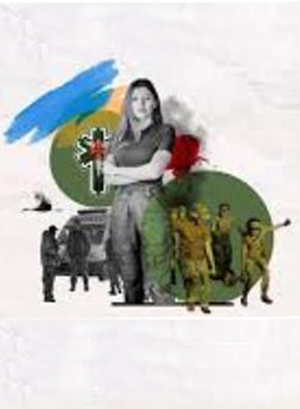
Source: https://www.koryu-meets-chess.info/
Please read the original story:
Ukraine's secret weapon - the medics in the line of fire - BBC News
Read more:
"Aware of a poet?
Aware of a poet?
A poet of Cossack broods over the land.
Not noting a bullet.
Not noting a bullet.
You see a poet of Cossack in Borodyanka."
(Kurama)
.jpg)
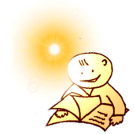
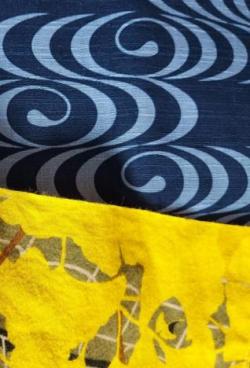
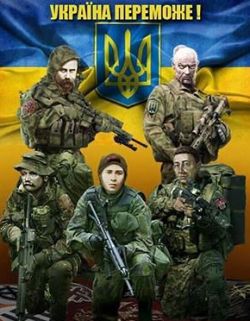
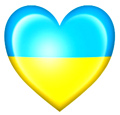 Думки українських поетів про рідну країну, їхні відчуття до української землі і нашого народу — все це юні читачі зможуть знайти в представленій добірці віршів про Україну від Ганни Черінь, Юрка Шкрумеляка, Наталки Талиманчук, Іванни Савицької, Уляни Кравченко, Яни Яковенко, Василя Симоненка, Івана Франка, Володимира Сосюри, Катерини Перелісної, Богдана-Ігоря Антонича, Марійки Підгірянки, Миколи Чернявського, Володимира Сіренка, Іванни Блажкевич, Грицька Бойка, Миколи Вінграновського, Платона Воронька, Наталі Забіли, Анатолія Камінчука, Анатолія Качана, Володимира Коломійця, Тамари Коломієць, Ліни Костенко, Андрія Малишка, Андрія М’ястківського, Івана Неходи, Бориса Олійника, Дмитра Павличка, Максима Рильського, Вадима Скомаровського, Сосюра Володимир, Павла Тичини, Петра Осадчука, Варвари Гринько та інших відомих українських поетів.
Думки українських поетів про рідну країну, їхні відчуття до української землі і нашого народу — все це юні читачі зможуть знайти в представленій добірці віршів про Україну від Ганни Черінь, Юрка Шкрумеляка, Наталки Талиманчук, Іванни Савицької, Уляни Кравченко, Яни Яковенко, Василя Симоненка, Івана Франка, Володимира Сосюри, Катерини Перелісної, Богдана-Ігоря Антонича, Марійки Підгірянки, Миколи Чернявського, Володимира Сіренка, Іванни Блажкевич, Грицька Бойка, Миколи Вінграновського, Платона Воронька, Наталі Забіли, Анатолія Камінчука, Анатолія Качана, Володимира Коломійця, Тамари Коломієць, Ліни Костенко, Андрія Малишка, Андрія М’ястківського, Івана Неходи, Бориса Олійника, Дмитра Павличка, Максима Рильського, Вадима Скомаровського, Сосюра Володимир, Павла Тичини, Петра Осадчука, Варвари Гринько та інших відомих українських поетів.